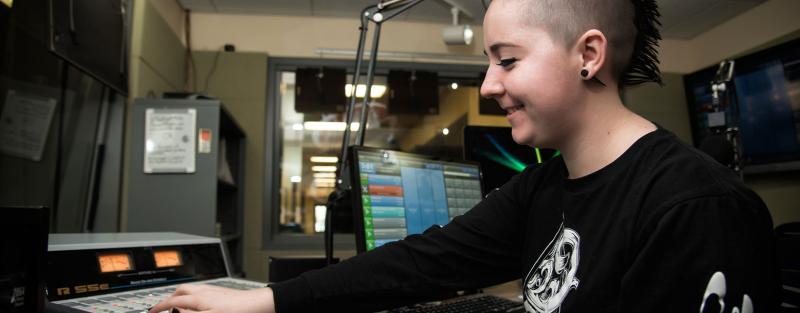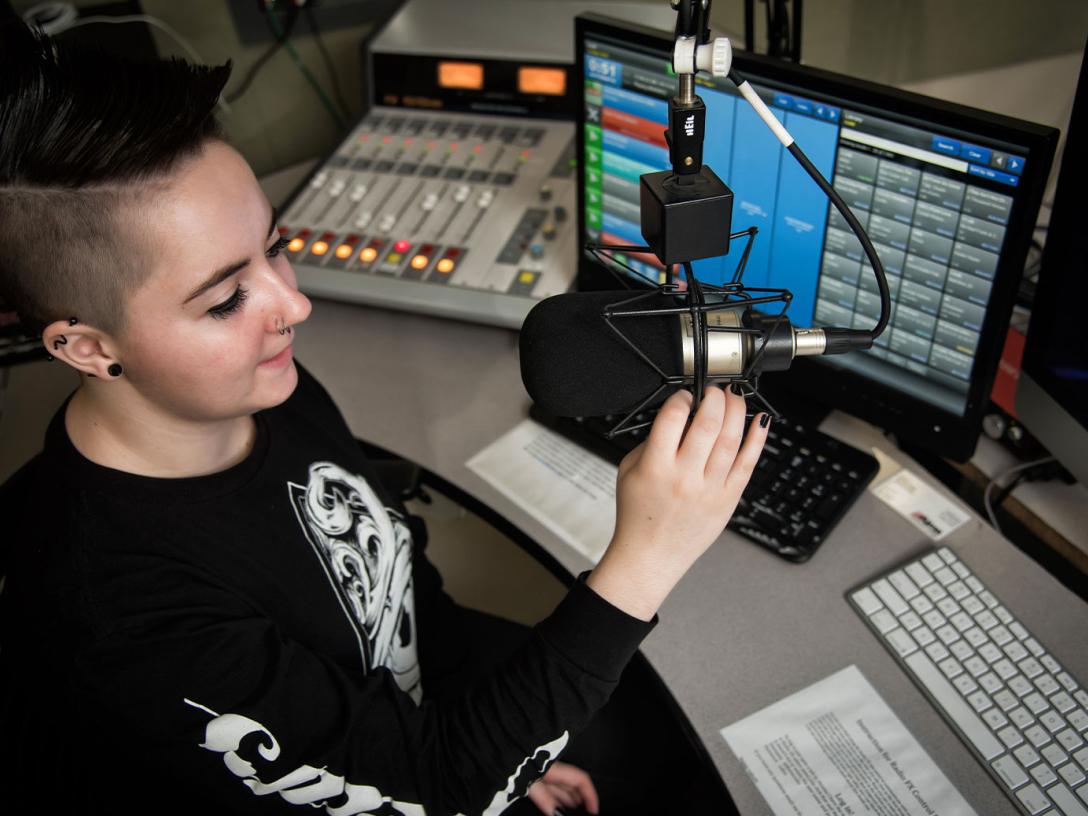Earn a Two-Year Radio Production Degree at Aims
Still popular with both listeners and advertisers, radio is a $40 billion per year industry. People listen to sports, news, music and comedy shows in their cars during commutes. They can also stream radio stations anywhere in the world on phones, tablets or computers. On-air personalities at local stations connect with listeners by sharing important news updates and information like community events.
The continued popularity and success of this industry means there are ample career opportunities in radio. If you’re interested in music, hosting a show or working behind the scenes in broadcasting, the Aims two-year radio degree program offers hands-on training at a radio station. You don’t need to know how to talk on the air or work the equipment to get started. By the time you graduate, you’ll have the on-air skills and technical knowledge to get a job in radio.



